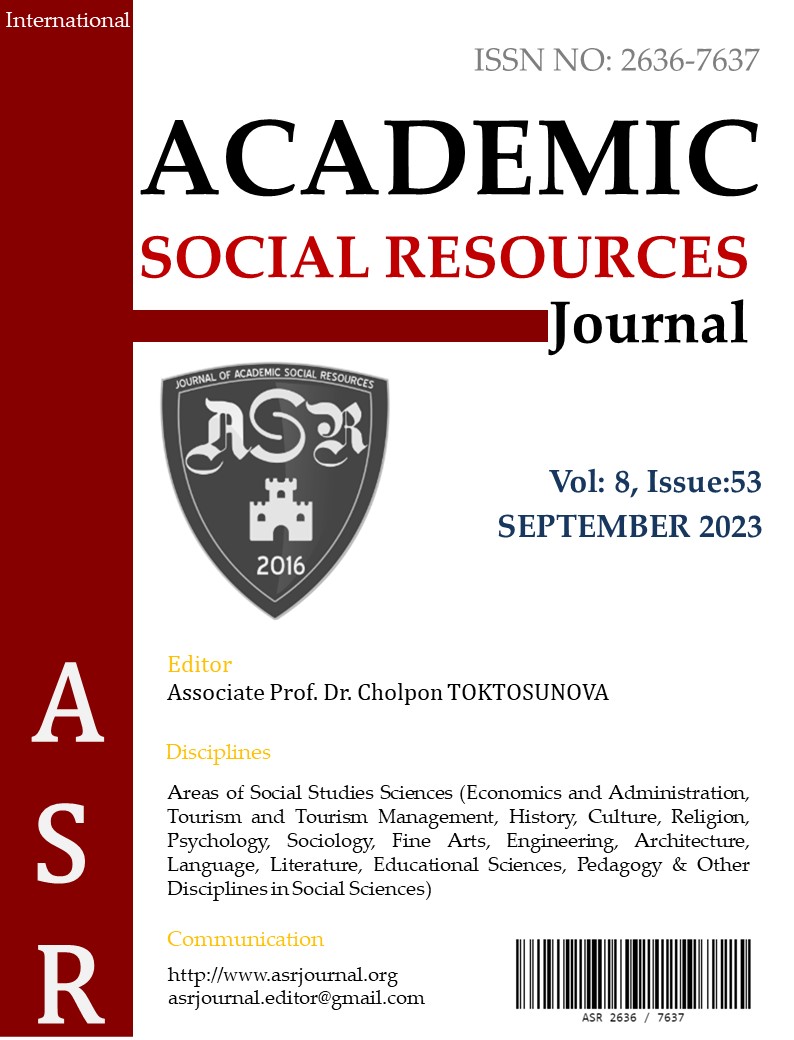Author :
Abstract
|
Bu çalışmanın amacı okul müdürlerinin liderlik yaklaşımları ve etkin okul yönetimi: bir araştırma ve değerlendirme yapmaktır. Bu çalışmanın yöntemi belirlenirken nitel araştırma tekniklerinden fenomenoloji deseni tercih edilmiştir. Araştırma grubu, amaçlı örnekleme yöntemlerinden biri olan maksimum çeşitlilik örnekleme stratejisi kullanılarak seçilmiştir. Bu yöntemle araştırmaya dahil edilen 14 katılımcı araştırmanın çalışma grubunu meydana getirmektedir. Verilerin toplanmasında yarı yapılandırılmış görüşme formu kullanılmıştır. Veriler içerik analizi kullanılarak analiz edilmiştir. Çalışmanın bulgularına göre, okul müdürlerinin liderlik yaklaşımlarının öğretmenlerin motivasyonunu, işbirliğini ve mesleki gelişimini olumlu şekillerde etkilediğini göstermektedir. Öğretmenlerin çoğunlukla destekleyici atmosfer, net vizyon sunumu, katkıların takdir edilmesi gibi faktörlerle motive olduğu görülmektedir. Aynı zamanda, şeffaflık, iletişim ve geri bildirimin olumlu etkileri de vurgulanmıştır. İletişim ve işbirliği, öğretmenlerin deneyimlerini paylaşmalarını, birbirlerinden öğrenmelerini teşvik ederken, okul müdürünün destekleyici yaklaşımı da öğretmenlerin gelişimini desteklemektedir. Bu yöntemler, öğretmenlerin katılımını artırma, iletişimi güçlendirme ve profesyonel gelişimi destekleme gibi anahtar hedefleri kapsamaktadır. |
Keywords
Abstract
|
The purpose of this study is to conduct a research and evaluation on principals' leadership approaches and effective school management. While determining the methodology of this study, phenomenology design, one of the qualitative research techniques, was preferred. The research group was selected using the maximum diversity sampling strategy, which is one of the purposeful sampling methods. The 14 participants included in the research with this method constitute the study group of the research. A semi-structured interview form was used to collect the data. The data were analyzed using content analysis. According to the findings of the study, school principals' leadership approaches positively affect teachers' motivation, collaboration and professional development. Teachers were mostly motivated by factors such as supportive atmosphere, clear vision presentation, and appreciation of contributions. At the same time, the positive effects of transparency, communication and feedback were also emphasized. Communication and collaboration encourage teachers to share experiences and learn from each other, while the principal's supportive approach supports teachers' development. These methods encompass the key objectives of increasing teacher involvement, strengthening communication and supporting professional development. |





